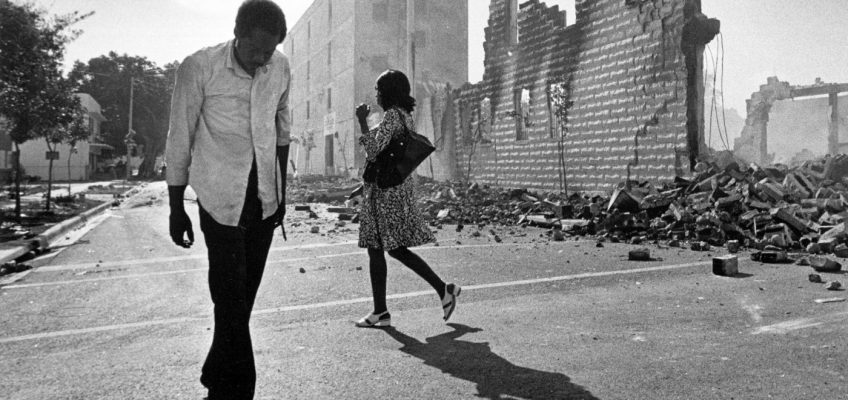A truly memorable snack can be the opening act to any holiday meal. As a kind of aperitif for the palate, small bites stir our taste buds and can be great conversation starters. But to make the best party-starters, you need some ground rules.
Clockwise from center: a savory holiday nut mix, chukchuk (coconut caramel clusters) and Gúgúrú àti Epà (sweet-salty popcorn and peanuts). The best way to start the celebration? Serving these unforgettable treats. Props styled by Sarah Smart. Food styled by Roscoe Betsill. (Kelly Marshall/The New York Times)
Rule No. 1: No utensils. Rule No. 2: Nothing too salty or cloyingly sweet. And No. 3, there should be something for everyone.
These snacks check those boxes and so many more.
The first is a lovely combination of popped corn kernels and roast peanuts. Known in Yorùbá as gúgúrú àti epà (maize and groundnuts), this is a classic snack in Lagos, and familiar to many across West Africa. Typically sold street side, it’s a fantastic combination of lightly spiced, slightly sweet popcorn and nuts, all things that go crunch-crunch-crunch.
This second leans more savory, featuring nuts enlivened with citrus, sage, fennel and cumin, and delicately held together with whipped egg whites, for a headier, more sophisticated snack bowl you might see on the bar. Large nuts such as pecans, walnuts and cashews work best, and seeds such as pumpkin, sesame or even flaxseeds can fill the spaces in between. When gently baked in a low temperature oven, this mix will release a fragrant parade, marching through to fill your kitchen and home with its scent.
Endearingly named chukchuk or shukshuk in Lagos for the prickly nature of the dried, shredded coconut bits, this last snack is familiar to anyone who loves the texture of fresh grated coconut. Large flakes of dried, unsweetened coconut are tossed in a caramel spiced with nutmeg, allspice and cloves then formed into clusters and baked. The result is a snack that’s sturdy enough to be hand-held or passed around in a bowl, but skews on the lighter side of a classic brittle.
All can be the first bite when hosting family or friends, or packaged as a holiday gift to send to loved ones as a way to bring the warmth and closeness of celebrations into the palm of your hand.
Chukchuk (Coconut Caramel Clusters)
Named chukchuk or shukshuk for the prickly nature of their dried shredded coconut bits, these clusters are common anywhere fresh coconuts are easy to find. The best versions are made fresh and delivered as gifts, from grandmother or other relatives with the patience and skill required to complete the process that starts with fresh coconut. But modern versions are also found on the busy streets of Lagos, Nigeria, sold by vendors as a snack. Unlike the originals, this recipe uses large unsweetened, dried coconut flakes, enrobed in a caramel that’s spiced with nutmeg, black pepper and clove. Introducing other ingredients to hot caramel can cause it to become crumbly and brittle, so proceed with caution and keep the pot over a low flame. And remember: Each spice will add an element that recalls the warmth of the holidays, and expresses, to anyone it’s made for, how it was made with care and love.
By Yewande Komolafe
Yield: 6 to 8 servings (about 15 pieces)
Total time: 45 minutes, plus cooling
INGREDIENTS
1 1/2 tablespoons unsweetened coconut oil, plus more for as needed
1 scant cup/180 grams sugar, plus a bit more to taste
1/4 cup/78 grams honey
1/2 teaspoon fine sea salt
1/4 teaspoon ground black pepper
1/4 teaspoon ground cloves
1/4 teaspoon ground nutmeg
4 cups/220 grams large unsweetened coconut flakes
DIRECTIONS
1. Set a rack in the center of the oven and heat oven to 325 degrees. Line a baking sheet with a silicone mat or parchment. Brush the edges and surface with enough oil to lightly coat. Set aside.
2. Place a large stainless steel or nonstick skillet over medium heat. Add the sugar, honey and 2 tablespoons water to the skillet. Using a spatula, stir to combine, then cook, lifting the skillet and swirling it over the flame, until the sugar dissolves into a smooth syrup and the syrup begins to simmer, 3 to 4 minutes.
3. Reduce the heat to low and continue to cook, swirling the pan over the heat to evenly distribute the color and keep the syrup a pale golden brown, about 6 minutes.
4. Keep the syrup on low, and add the salt, black pepper, cloves and nutmeg. Add 2 tablespoons water along the edge of the skillet to dissolve any crystallized sugar. Swirl the skillet over low heat, add the coconut flakes and, using the spatula, toss the coconut flakes with the sugar to fully coat. (The sugar will again crystallize.) Continue to cook over low heat until the syrup melts and the coconut flakes are sticky and enrobed in caramel, about 5 minutes.
5. Lightly oil a 1/4 cup measuring cup, and pack loosely with the mixture. Drop clusters about 1/2 inch apart on the prepared baking sheet, lightly pushing any pieces that fall away back into its pile.
6. Transfer to the oven. Cook, rotating the sheet once without moving the clusters. A few will be a dark golden brown, and they’ll spread and develop lacy skirts, 10 to 11 minutes. Remove, allow to cool and set completely, 20 minutes.
7. Cut 2-inch squares of wax paper or lightly greased parchment. Store the clusters, once they’re completely cool, between squares of the waxed paper or parchment in an airtight container for up to 7 days.
Savory Holiday Nut Mix
A collection of nuts, spices, sage and orange zest, this easy dish can serve as a holiday appetizer or gift alike. Fennel, cumin and black pepper add complexity when crushed. Use whatever collection of nuts and seeds you like; the idea is to have balanced and contrasting textures. The fragrant aroma from the baked nut mix will linger in your kitchen and offer warmth and comfort for the cold days ahead.
By Yewande Komolafe
Yield: About 4 cups
Total time: 1 hour 10 minutes
INGREDIENTS
3 oranges
2 egg whites, beaten
1/4 teaspoon cream of tartar
1 teaspoon fennel seeds
1 teaspoon cumin seeds
1 teaspoon black peppercorns
1/2 teaspoon fine sea salt, plus more to taste
1 tablespoon fresh sage leaves, cut in half lengthwise and finely chopped
4 cups raw, unsalted whole nuts or seeds (any combination walnuts, almonds, pecans, pepitas, cashews, sesame seeds or flaxseeds)
DIRECTIONS
1. Using a sharp knife, remove the orange skin above the flesh, avoiding the bitter white pith as possible. Mince the zest and set aside. (Save peeled oranges for another use.)
2. Line a baking sheet with a silicone mat or parchment. Heat oven to 300 degrees. In a large mixing bowl with a large whisk or handheld mixer or in the bowl of a stand mixer fitted with a whisk attachment, combine the egg whites and cream of tartar until the egg whites form stiff peaks, about 10 minutes (see Tip).
3. In a mortar and pestle or a spice grinder, crush the fennel, cumin, black pepper and salt, about 2 minutes. The spices should be broken and fragrant with whole pieces still visible. Add in the citrus zest and sage, and stir to combine, about 1 minute.
4. Add the nuts to the egg whites and gently stir until coated and combined. Add the spice mix. The egg whites will slightly deflate, but this will not affect the outcome.
5. Transfer the nut mixture to the prepared baking sheet and spread in an even layer.
6. Cook, rotating the sheet and stirring halfway through, about 11 minutes. The nuts should be very fragrant and dry to the touch. Taste and adjust with additional salt if necessary so it feels balanced. Spread again in an even layer and continue to roast for another 13 minutes. Remove and cool, 20 minutes.
7. Once cool enough to handle, break up any clusters. The nut mix can be stored once cool in an airtight container for up to 7 days.
Tips: First whisking the egg whites helps prevent the cream of tartar from clumping and sticking to the bowl.
Gúgúrú àti Epà (Sweet-Salty Popcorn and Peanuts)
A classic street snack in Lagos, Nigeria, gúgúrú (popcorn) àti epà (groundnut or peanut) is often sold wrapped in cones made from old newspaper pages or in small plastic bags, delivered by vendors into the hands of eager customers. It’s known for its remarkable smoked element: The lightly spiced maize kernels are often roasted in large metal pots set over hot embers, where they burst into fluffy, airy popcorn before being mixed with salted peanuts. Here, sugar, salt and smoked paprika enhance the flavor, bringing distinct elements. Remember to keep the pot covered with a lid or screen during the popping process. What results is the perfect thing to keep your mouth entertained, whether you’re awaiting a meal or wrapping presents, and an ideal gift, tucked into a bag, for anyone who stops by.
By Yewande Komolafe
Yield: 4 to 6 servings (4 cups)
Total time: 25 minutes, plus cooling
INGREDIENTS
2 tablespoons vegetable oil
1/4 cup popcorn kernels
1 tablespoon sugar
1/4 teaspoon sweet paprika
1/4 teaspoon kosher salt (such as Diamond Crystal)
1 cup salted, roasted peanuts, skin on or off
DIRECTIONS
1. Have all ingredients on hand and ready to go. Place the oil into a tall, wide (6-quart) lidded pot over medium heat. Drop a couple of popcorn kernels into the center of the pot, cover and cook until the kernels pop, 3 to 6 minutes. The popping means the oil is hot enough.
2. Reduce the heat to low, add the remaining kernels and quickly stir to coat them in oil. Add the sugar, paprika and salt, quickly stir to combine and cover. Wearing oven mitts, shake and swirl the pot every 10 seconds, until the kernels begin to pop, about 5 minutes. When they begin to pop rapidly, shake the pot over the heat continuously so the sugar doesn’t burn. As soon as the popping slows to every 2 to 3 seconds, remove the pot from the heat. Set aside, with the lid on, until the popping completely stops, 2 to 4 minutes.
3. Add the peanuts, tossing with a wooden spoon to combine. When cool enough to handle, 5 to 7 minutes, break up any clusters, remove any unpopped kernels, and serve.
4. Once cooled, store covered and in an airtight container at room temperature for up to 5 days.
Potter’s Pasties opens inside Beer Dabbler Depot liquor store on St. Paul’s West Seventh
How to make bouillabaisse, a French fishermen’s feast
Flour Chicks Bakery in Nevis, Minn., makes thousands of sweet snacks
This Tuscan flatbread is a colorful, gluten-free alternative to classic crostini
The end of the lunch bowl era




